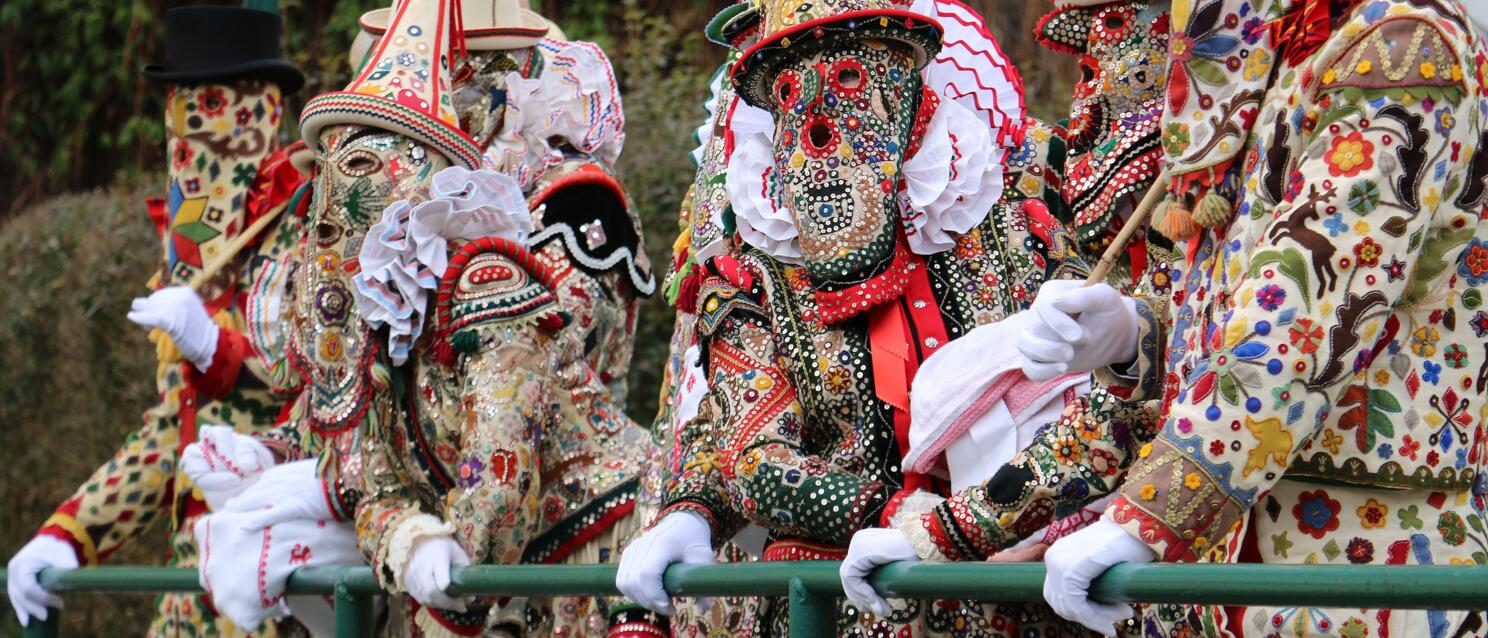The Most Beautiful Traditional Festivals

Austrians look back on their roots with care and a sense of pride, holding their traditions in high regard. From an early age, people here grow up with regional customs and rituals, naturally weaving them into their way of life.
This deep connection is palpable at every traditional festival across the country. Austria’s traditions are not merely preserved but actively lived and celebrated. The dedication and joy that go into these festivities can be felt firsthand. These events are by no means staged performances designed to entertain visitors—rather, the love for tradition is genuine and heartfelt, and it is gladly shared with those who come to experience and learn about the local culture.
Traditional festivals in every season
The Carnival season and its customs
The time of advent brings in the beautifully decorated Christmas markets with mulled wine, craftsmanship and music to get you into that festive mood. After the Christmas holidays come the raucous nights with its mystical traditions and masks, followed by New Years' fireworks and more to bring you good luck for the year ahead.
After that, it's carnival season: Carnival parades and celebrations come in many different forms. What they all have in common are the magnificent costumes and elaborate masks. In addition to the battle between good and evil forces, carnival is of course, also about fun, exuberance and joie de vivre.
The Viennese balls are the highlight of the carnival season. Their unique flair and noble ambience make them an unforgettable event. During Carnival, a state of exception takes over with countless parades, festivities, and events. Not to forget the Faschingskrapfen - Austrian doughnuts - which you can get everywhere during this season.
Daffodil festival in Ausseerland, Styria
Like an endless sea of white blossoms – that’s how the Ausseerland looks in spring when the star daffodils are in full bloom. At the Narzissenfest (Daffodil Festival) in late May, these flowers take centre stage, as around 3,000 helpers—including children and even holidaymakers—gather to pick them.
Participants in the floral parade use more than 100,000 daffodils to decorate their towering wire sculptures, which they have spent months constructing. The town parade then makes its way to the centre, featuring around 30 intricately handcrafted figures. The intoxicating scent of the blossoms fills the air for both visitors and the jury, who judge the floral sculptures. At midday, brass bands, traditional costume groups, and the daffodil royalty accompany the procession to the lake.
Summer solstice in the Wachau
The roots of solstice celebrations date back to pre-Christian times when flames were believed to ward off evil spirits. To this day, towering bonfires are built along the Danube, vineyards are lined with torches, castles are illuminated, and glowing lanterns drift down the river. As night falls, the fires are lit, creating a breathtaking spectacle best admired from the Wachau Railway or aboard a Danube cruise. The highlight of the evening? A dazzling firework display.
Many Heurige, inns, and restaurants in the region mark the occasion with special solstice menus, featuring regional delicacies and world-class wines.
Austrian cattle drives
Every year in Austria, farmers, herders and alpine dairymen and women make their way from the valleys up to the mountain pastures with their animals in spring. High up in the Alps, cows, sheep, goats, and horses find lush alpine meadows and herbs that make for particularly nutritious fodder. Nature also benefits from their summer stay: alpine farming plays an important role in maintaining the cultivated landscape, preventing it from becoming overgrown.
In autumn, the animals are driven back down to the valley. Adorned with intricately crafted headdresses made of pine branches, flowers and colourful ribbons, they make a striking sight. The sound of cowbells – said to ward off evil spirits – can be heard from afar as they approach the village, where locals and onlookers eagerly await their arrival.
Climate Protection Info
Why are traditions and customs sustainable?
The preservation of traditions and customs in Austria is deeply intertwined with sustainability. Events like Almabtriebe (cattle drives), traditional festivals, and regional craftsmanship reflect a profound respect for nature and resources. They also promote social sustainability, fostering a shared commitment to maintaining the cultural and natural heritage of the region.
As part of intangible cultural heritage, traditional rituals, customs, and craftsmanship are carefully passed down through generations, ensuring their survival for the future.